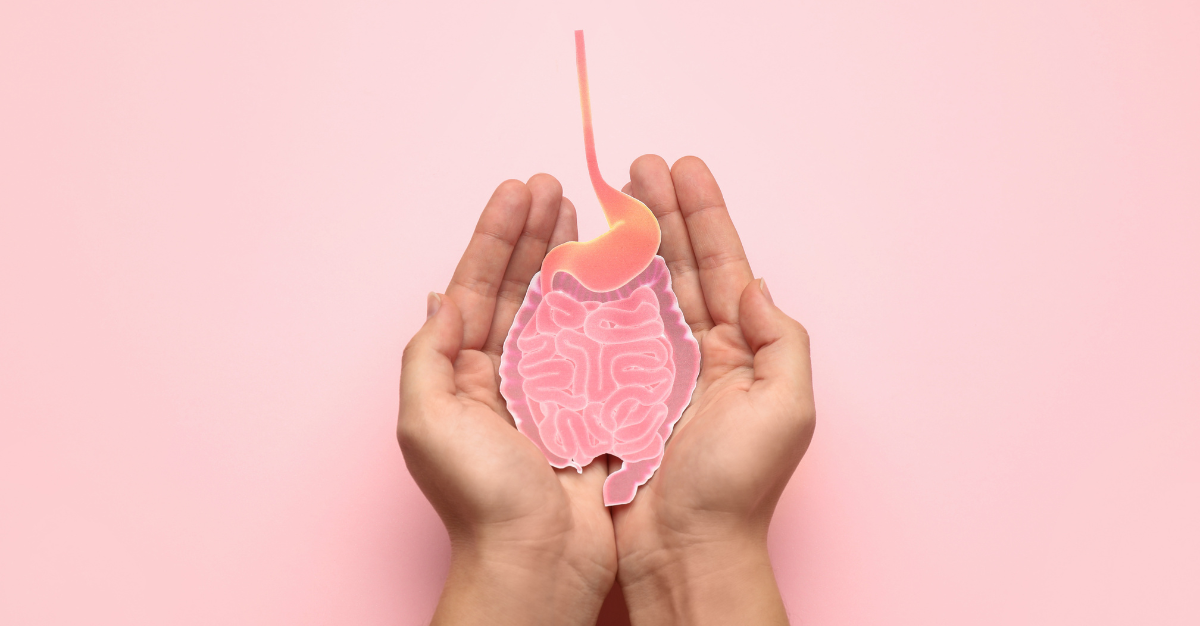
Despite the many scientific advances in the field of medicine over the last few decades, many of us neglect one of the most important contributors to our wellbeing: sleep. It’s a bit ironic. We now know more than ever before about the effect of lifestyle on health, but, on average, we’re sleeping less.
The results of missing out on a good night’s sleep can undermine your efforts with nutrition and fitness. Your body needs sleep to regenerate and experience the benefits of your work towards better health. But many people experiencing sleep problems, or looking to improve health and energy levels, struggle to improve their quality of sleep. This often leads them to pharmaceutical solutions that can create more problems than they solve. A more natural approach improves the quality of your sleep without the potential for dangerous side effects.
Why We Need Sleep
It may seem simple on the surface, but sleeping is a complex process necessary for many functions, including.
● Energy conservation so you can tackle whatever the next day holds
● Hormone release and regulation
● Muscle repair
● Processing and organizing memories and information accumulated during waking hours
● Strengthening of your immune system
Because so much happens while we sleep, the results of not getting enough can be far-reaching. We don’t just feel tired, we are also at a higher risk of:
● Mental health problems. Almost every mental health condition can be impacted by not getting enough sleep. The frustrating element is that many mental health conditions make it harder to fall asleep and stay asleep.
● Weight gain and other metabolic concerns. Sleep regulates the hormones that control appetite, including leptin and ghrelin. Studies show that missing even one good night’s sleep can lead to poorer food choices. Missing out on sleep can lead to weight gain, metabolic syndrome, and Type 2 diabetes.
● Weakened immunity. You’ve probably noticed you’re more likely to get sick when you’re tired. That’s because you produce infection-fighting cytokines and other antibodies while you sleep.
● Heart problems. Several factors influencing heart health, including cortisol levels and blood pressure, are impacted by sleep.
● Accidents. You’re less focused when you are tired, and that impacts your risk of a car accident in a way similar to drinking alcohol. You’re three times more likely to get in an accident when you’re tired!
Five Ways To Improve Your Sleep - And Your Wellbeing
1 - Improve your sleep hygiene.
Regular and predictable are the keys to a good sleep routine. It might take some experimenting to find what works for you, but many people find reading, taking a warm bath, doing some restorative yoga or meditation relaxes them.
Try to build in a routine to separate your sleep time from the stress and activity of your day. Some people find it helps to limit their bedroom to only for sleeping.
2 - Eat for sleep
Your diet can impact your sleep in several ways. For optimum sleep, eliminate the things that inhibit a good night’s sleep and focus on those that relax and balance your body and mind.
Avoid:
● Stimulants like caffeine, especially after noon as it takes upwards of 4 hours to clear your system.
● Alcohol before bedtime. Although alcohol is a depressant and can make you feel sleepy, it often disrupts your natural sleep cycles and you may find yourself waking up frequently.
● Spicy and overly heavy foods, which can make you too uncomfortable to sleep and cause indigestion.
Choose instead:
● Chamomile tea, which has proven sleep-enhancing effects.
● Foods high in tryptophan, which can relax you and encourage higher serotonin levels. In addition to turkey’s infamous tryptophan content, foods that contain tryptophan include salmon, pineapple, tofu, many nuts and seeds, and eggs.
● Some research suggests that consuming foods high in carbohydrates, like potatoes or rice, with foods containing tryptophan has a positive influence on sleep.
● Certain supplements can be beneficial for improving sleep, but be sure to work with a healthcare practitioner to determine what’s right for you. Some supplements used to help sleep include magnesium, which helps regulate the neurotransmitters linked to sleep, and melatonin, a hormone that helps regulate your circadian rhythm. Herbal supplements include valerian and passion flower, which both have sedative effects.
3 - Avoid blue light before bedtime.
The blue light emitted from electronic devices can trick your body into thinking it’s day time. As a result, it slows melatonin production, the hormone that regulates your sleep cycle. Try to avoid computer and device screens in the three hours before bedtime. If you must be in front of a screen, look into blue-light blocking glasses. Many people keep their phone beside their bed, but try to put yours in another room at night. (If you use it as an alarm clock, buy a digital or standard alarm clock. You’ll be surprised at the difference this makes!)
4 - Create a sleep-friendly environment.
It’s important to work with your body’s natural rhythms. A cool, dark environment signals that it’s night time, and therefore your body will release more melatonin. In fact, one study found that room temperature is one of the most important factors in the quality of sleep.
5 - Exercise wisely.
A regular exercise routine can help you fall asleep, but avoid intense activities at least two hours before bed. Researchers have seen positive effects on sleep from regular exercise such as yoga, strength training, and steady state cardio.
Don’t let poor sleep undermine your quest for a healthy lifestyle. Take the first step today towards better rest, more energy and a greater sense of wellbeing. Call for an appointment with us to talk about better sleep strategies!
Sources:
Scott AJ, Webb TL, Rowse GDoes improving sleep lead to better mental health? A protocol for a meta-analytic review of randomised controlled trialsBMJ Open 2017;7:e016873. doi: 10.1136/bmjopen-2017-016873
Cedernaes J, Schönke M, Westholm JO, Mi J, Chibalin A, Voisin S, Osler M, Vogel H, Hörnaeus K, Dickson SL, Lind SB, Bergquist J, Schiöth HB, Zierath JR, Benedict C. Acute sleep loss results in tissue-specific alterations in genome-wide DNA methylation state and metabolic fuel utilization in humans. Sci Adv. 2018 Aug 22;4(8):eaar8590. doi: 10.1126/sciadv.aar8590. PMID: 30140739; PMCID: PMC6105229.
Asif N, Iqbal R, Nazir CF. Human immune system during sleep. Am J Clin Exp Immunol. 2017 Dec 20;6(6):92-96. PMID: 29348984; PMCID: PMC5768894.
National Safety Council, “Drivers are falling asleep behind the wheel”
Sundelin T, Lekander M, Sorjonen K, Axelsson J. Negative effects of restricted sleep on facial appearance and social appeal. R Soc Open Sci. 2017 May 17;4(5):160918. doi: 10.1098/rsos.160918. PMID: 28572989; PMCID: PMC5451790.
Pleunie S. Hogenkamp, Emil Nilsson, Victor C. Nilsson, Colin D. Chapman, Heike Vogel, Lina S. Lundberg, Sanaz Zarei, Jonathan Cedernaes, Frida H. Rångtell, Jan-Erik Broman, Suzanne L. Dickson, Jeffrey M. Brunstrom, Christian Benedict, Helgi B. Schiöth, Acute sleep deprivation increases portion size and affects food choice in young men,vPsychoneuroendocrinology, Volume 38, Issue 9, 2013, Pages 1668-1674, ISSN 0306-4530,https://doi.org/10.1016/j.psyneuen.2013.01.012.
Miraj S, Alesaeidi S. A systematic review study of therapeutic effects of Matricaria recuitta chamomile (chamomile). Electron Physician. 2016 Sep 20;8(9):3024-3031. doi: 10.19082/3024. PMID: 27790360; PMCID: PMC5074766.
Jenkins TA, Nguyen JC, Polglaze KE, Bertrand PP. Influence of Tryptophan and Serotonin on Mood and Cognition with a Possible Role of the Gut-Brain Axis. Nutrients. 2016 Jan 20;8(1):56. doi: 10.3390/nu8010056. PMID: 26805875; PMCID: PMC4728667.
Nédélec M, Halson S, Delecroix B, Abaidia AE, Ahmaidi S, Dupont G. Sleep Hygiene and Recovery Strategies in Elite Soccer Players. Sports Med. 2015 Nov;45(11):1547-59. doi: 10.1007/s40279-015-0377-9. PMID: 26275673.
Abbasi B, Kimiagar M, Sadeghniiat K, Shirazi MM, Hedayati M, Rashidkhani B. The effect of magnesium supplementation on primary insomnia in elderly: A double-blind placebo-controlled clinical trial. J Res Med Sci. 2012 Dec;17(12):1161-9. PMID: 23853635; PMCID: PMC3703169.
Ngan A, Conduit R. A double-blind, placebo-controlled investigation of the effects of Passiflora incarnata (passionflower) herbal tea on subjective sleep quality. Phytother Res. 2011 Aug;25(8):1153-9. doi: 10.1002/ptr.3400. Epub 2011 Feb 3. PMID: 21294203.
Gooley JJ, Chamberlain K, Smith KA, Khalsa SB, Rajaratnam SM, Van Reen E, Zeitzer JM, Czeisler CA, Lockley SW. Exposure to room light before bedtime suppresses melatonin onset and shortens melatonin duration in humans. J Clin Endocrinol Metab. 2011 Mar;96(3):E463-72. doi: 10.1210/jc.2010-2098. Epub 2010 Dec 30. PMID: 21193540; PMCID: PMC3047226.
Okamoto-Mizuno K, Mizuno K. Effects of thermal environment on sleep and circadian rhythm. J Physiol Anthropol. 2012 May 31;31(1):14. doi: 10.1186/1880-6805-31-14. PMID: 22738673; PMCID: PMC3427038.
Kovacevic A, Mavros Y, Heisz JJ, Fiatarone Singh MA. The effect of resistance exercise on sleep: A systematic review of randomized controlled trials. Sleep Med Rev. 2018 Jun;39:52-68. doi: 10.1016/j.smrv.2017.07.002. Epub 2017 Jul 19. PMID: 28919335.



